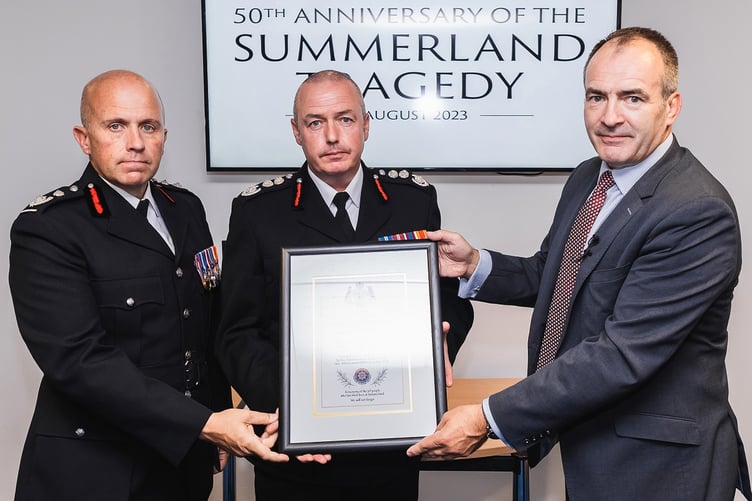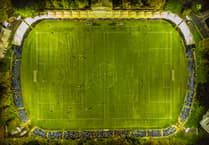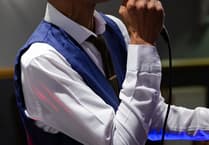The Chief Minister yesterday paid tribute to the emergency services who attended the Summerland fire disaster.
Alfred Cannan was speaking as the island prepares to mark 50 years since the tragedy in which 50 people died when the Douglas leisure centre burned down.
He made a presentation to emergency and health services in the Barrool in the Tynwald building.
Here is what he said:
Good afternoon and thank you all for attending this Presentation to formally recognise the efforts of our Emergency and Health Services in their response to the Summerland Fire 50 years ago this week, on Thursday, August 2, 1973.
As we all know, the Summerland disaster was, at the time, the worst fire the British Isles had witnessed since the Blitz
Approximately 3,000 visitors and locals were inside the building that night, and 50 people tragically lost their lives as a result of the blaze, with another 100 suffering serious injuries.
It is widely acknowledged that the Island’s response to the developing incident prevented many more casualties.
And that is why we are here today: to pay tribute to and recognise the efforts of the constabulary, fire and rescue service and health and care professionals.
Your people ran towards the incident - tackling the blaze, helping many to escape, and supporting and comforting those caught up in the horror. In the days and weeks that followed, they cared for the injured and bereaved, and helped deal with the aftermath.
I would therefore like to take this opportunity to thank your organisations for the actions of your members.
It is appropriate that we remind ourselves of the scale of the response.
The Isle of Man Fire and Rescue Service mobilised 93 of its 106 firefighters to Summerland, as well as all 16 of its fire engines to help fight the blaze and assist the evacuation effort.
The service committed every resource it had, on one of the busiest weeks of the year. Appliances were sent from all corners of the Island. Firemen recall trying to get into the burning building as others were running out – the pleas of desperate people outside to find their loves ones trapped inside, ringing in their ears.
It is a scenario which typifies the ultimately selfless nature of the fire-fighter’s role: risking their own life to save that of another.
Water was pumped from the nearby Derby Castle baths, and even from the sea – in a desperate attempt to try and control the blaze. A massive logistical exercise undertaken in the most challenging of situations.
Despite relentless efforts, the brigade could not prevent the destruction of Summerland’s upper floors – reporter Alan Jackson declared at the time that ‘no brigade in the country could have coped with it.’
And so, it fell to fire officers to bring out many of those who lost their lives, a distressing but necessary task undertaken with diligence and compassion over the course of several days, while damping down at the scene continued.
It is documented that several firemen were left severely traumatised by the fire, and the sights they witnessed. Today, we recognise this suffering in the course of duty.
For this exceptional service, we pay tribute and offer our immense gratitude.

Isle of Man Constabulary police officers from all over the island responded to the call, including those off-duty at the time. The constabulary created a cordon around the site and played a key role in the evacuation of people from inside the building, coordinating fleets of ambulances to and from the scene.
As the scale of the tragedy unfolded, it was reported that Douglas Police Station received approximately 28,000 phone calls from families, both on and off-Island, trying to contact their loved-ones or receive assurance they were safe.
Most police officers worked around the clock in the immediate aftermath of the fire. Many assisted doctors and firemen in the recovery operation, and then the removal of those who had died to St George’s Hall, while large numbers of people waited for news, outside the police station.
Police officers then dealt with a myriad of tasks and issues, from identification of the deceased and comforting bereaved families, to the taking of statements, liaison with the authorities and later, providing evidence to the commission of inquiry.
Chief Constable Frank Weedon later recalled the immense sadness felt by officers who dealt with the fire. We honour the professionalism of the constabulary and recognise the profound and ongoing impact of this tragic event.
People from all backgrounds within Health and Care rallied to assist the injured that night. Whether they were ambulance drivers, paramedics, pharmacists, doctors, nurses, or retired professionals, they all played a significant role in treating the injured immediately after the disaster and caring for those recovering from their ordeal in the weeks and months that followed.
Noble’s Hospital mobilised all necessary staff and equipment. Offers of help from nursing and medical staff as well as volunteers came in swiftly, so that a nurse could be allocated to each patient.
The injuries and complications suffered by patients presented a huge challenge to hospital services and to the individuals providing them, and this challenge was met with outstanding devotion to duty and a determination to do the very best for every single patient.
Health and care professionals, like their counterparts in the fire and police services, were called upon to speak to relatives in the most difficult of circumstances, and to deal with an overwhelming number of urgent enquiries – some 27,000 calls were said to have been made to the hospital in the 36 hours after the fire.
Turning to the present day, it is right to use this presentation to highlight the vigilance of the current emergency and health services across our island. Drawing parallels with events half a century ago, they know that, at any point, they could be called upon to respond to a large-scale tragedy such as Summerland.
The work they undertake is exceptional and for their protection and sacrifice we are profoundly grateful.
With that, I would like to present our senior representatives of the Emergency and Health Services present today with a specially-commissioned Scroll of Recognition to formally recognise their organisation’s response to the Summerland fire.
Mr Cannan made presentations to Chief Constable Russell Foster, Chief Fire Officer Mark Christian and Deputy Chief Fire Officer John Murtagh, the head of the ambulance service Will Bellamy and the chief executive of Manx Care Teresa Cope.

.jpeg?width=209&height=140&crop=209:145,smart&quality=75)



Comments
This article has no comments yet. Be the first to leave a comment.